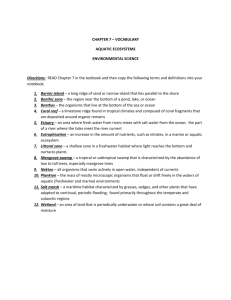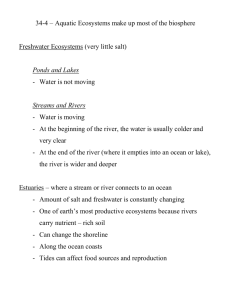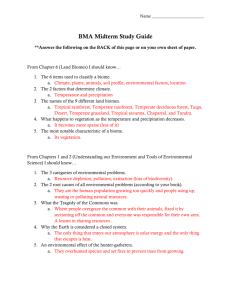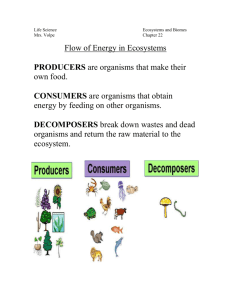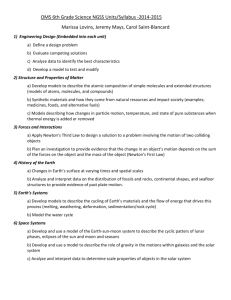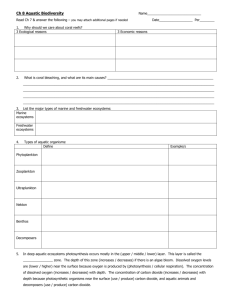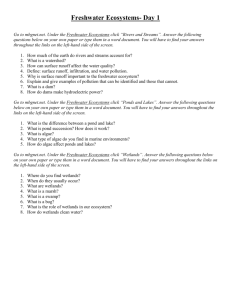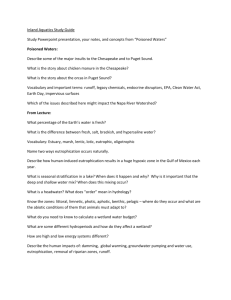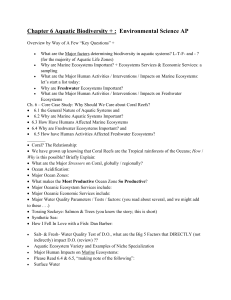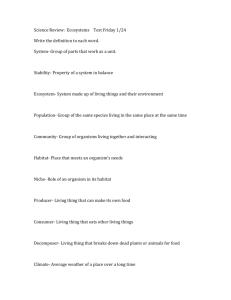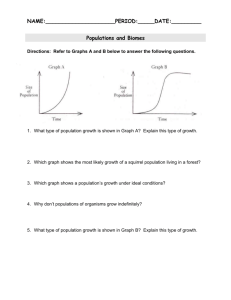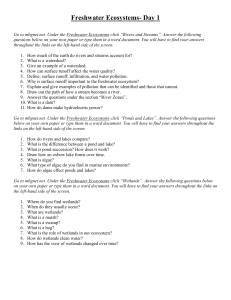07 Freshwater Ecosystems, Marine Ecosystems
advertisement
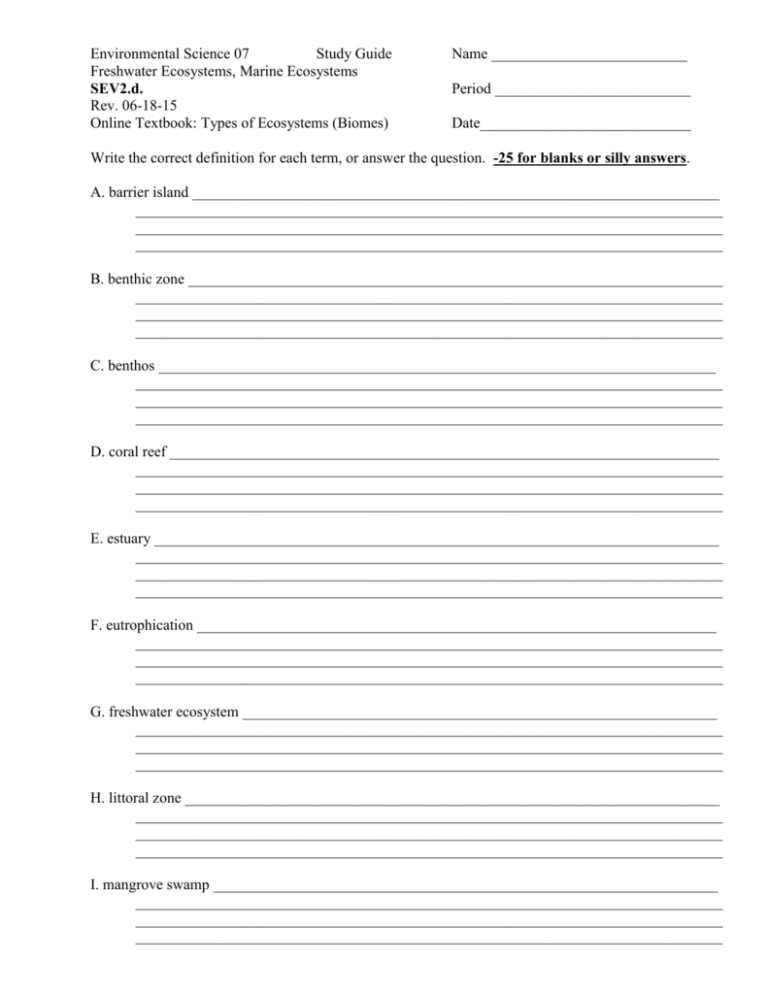
Environmental Science 07 Study Guide Freshwater Ecosystems, Marine Ecosystems SEV2.d. Rev. 06-18-15 Online Textbook: Types of Ecosystems (Biomes) Name __________________________ Period __________________________ Date____________________________ Write the correct definition for each term, or answer the question. -25 for blanks or silly answers. A. barrier island ______________________________________________________________________ ______________________________________________________________________________ ______________________________________________________________________________ ______________________________________________________________________________ B. benthic zone _______________________________________________________________________ ______________________________________________________________________________ ______________________________________________________________________________ ______________________________________________________________________________ C. benthos __________________________________________________________________________ ______________________________________________________________________________ ______________________________________________________________________________ ______________________________________________________________________________ D. coral reef _________________________________________________________________________ ______________________________________________________________________________ ______________________________________________________________________________ ______________________________________________________________________________ E. estuary ___________________________________________________________________________ ______________________________________________________________________________ ______________________________________________________________________________ ______________________________________________________________________________ F. eutrophication _____________________________________________________________________ ______________________________________________________________________________ ______________________________________________________________________________ ______________________________________________________________________________ G. freshwater ecosystem _______________________________________________________________ ______________________________________________________________________________ ______________________________________________________________________________ ______________________________________________________________________________ H. littoral zone _______________________________________________________________________ ______________________________________________________________________________ ______________________________________________________________________________ ______________________________________________________________________________ I. mangrove swamp ___________________________________________________________________ ______________________________________________________________________________ ______________________________________________________________________________ ______________________________________________________________________________ J. marine ecosystem ___________________________________________________________________ ______________________________________________________________________________ ______________________________________________________________________________ ______________________________________________________________________________ K. nekton ___________________________________________________________________________ ______________________________________________________________________________ ______________________________________________________________________________ ______________________________________________________________________________ L. plankton __________________________________________________________________________ ______________________________________________________________________________ ______________________________________________________________________________ ______________________________________________________________________________ M. salt marsh ________________________________________________________________________ ______________________________________________________________________________ ______________________________________________________________________________ ______________________________________________________________________________ N. toxins ____________________________________________________________________________ ______________________________________________________________________________ ______________________________________________________________________________ ______________________________________________________________________________ O. wetland __________________________________________________________________________ ______________________________________________________________________________ ______________________________________________________________________________ ______________________________________________________________________________ Also know: Too many nutrients in a lake causes eutrophication. As nutrients rise, so do the number of bacteria. These bacteria can deplete the oxygen in the water so completely that many organisms that depend on oxygen are killed. These include fish, mollusks, and crustaceans. Eutrophication can be caused by sewage, agricultural fertilizer runoff, or animal waste runoff. Wetlands are important to fisheries in the United States because wetlands are where many species of fish feed and spawn. Mangrove trees grow in tropical areas and in subtropical areas. Tiny organisms which break down dead organisms are called decomposers. Tiny animals, called coral polyps, that secrete limestone are very vulnerable to CO2 in the ocean and form habitat for many organisms by creating coral reefs. The only continent never colonized by humans is Antarctica.
